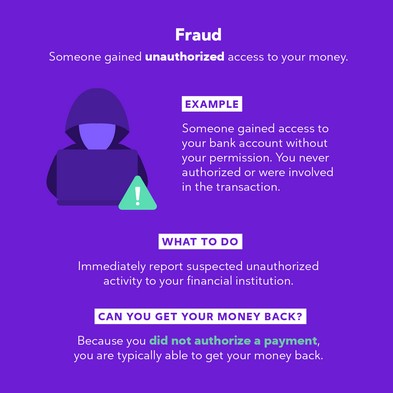Can Someone Scam You on Zelle: Protecting Your Digital Finances
 As digital payments become more popular, it is important to be aware of the potential risks associated with them. Zelle is a popular digital payment platform that allows users to send and receive money quickly and easily. Unfortunately, it is also a platform that can be used by scammers to take advantage of unsuspecting users. In this article, we will discuss how to protect yourself from scammers on Zelle and what to do if you think you have been scammed. We will also provide tips on how to spot a scammer and how to report suspicious activity. By following these steps, you can help protect your digital finances and keep your money safe.
As digital payments become more popular, it is important to be aware of the potential risks associated with them. Zelle is a popular digital payment platform that allows users to send and receive money quickly and easily. Unfortunately, it is also a platform that can be used by scammers to take advantage of unsuspecting users. In this article, we will discuss how to protect yourself from scammers on Zelle and what to do if you think you have been scammed. We will also provide tips on how to spot a scammer and how to report suspicious activity. By following these steps, you can help protect your digital finances and keep your money safe.
How to Spot a Scam on Zelle: Tips for Protecting Your Digital Finances
As digital payments become increasingly popular, it is important to be aware of the potential risks associated with using digital payment services such as Zelle. Scams are a common occurrence in the digital world, and it is important to be aware of the signs of a scam in order to protect your digital finances. Here are some tips for spotting a scam on Zelle:
1. Be wary of requests for personal information. Zelle does not require users to provide personal information such as Social Security numbers or bank account numbers. If someone is asking for this information, it is likely a scam.
2. Be suspicious of requests for money. Zelle is not intended to be used for sending money to strangers. If someone is asking you to send them money via Zelle, it is likely a scam.
3. Be cautious of requests for payment for goods or services. Zelle is not intended to be used for purchasing goods or services. If someone is asking you to pay for something via Zelle, it is likely a scam.
4. Be aware of requests for payment for “investment opportunities”. Zelle is not intended to be used for investing. If someone is asking you to invest money via Zelle, it is likely a scam.
5. Be wary of requests for payment for “loans”. Zelle is not intended to be used for lending money. If someone is asking you to lend them money via Zelle, it is likely a scam.
By following these tips, you can help protect your digital finances from scammers. It is important to be aware of the signs of a scam and to never provide personal information or send money to strangers. If you suspect that you have been the victim of a scam, contact Zelle customer service immediately.
Understanding the Risks of Using Zelle: What You Need to Know to Avoid Being Scammed
The use of digital payment services such as Zelle has become increasingly popular in recent years. While these services offer convenience and speed, they also come with certain risks that users should be aware of. This article will discuss the potential risks associated with using Zelle and provide tips on how to avoid being scammed.
One of the primary risks associated with using Zelle is the potential for fraud. Zelle is a peer-to-peer payment service, meaning that users can send money directly to another person without involving a bank or other financial institution. This makes it easier for scammers to take advantage of unsuspecting users. For example, a scammer may pose as a legitimate business and request payment via Zelle, only to disappear with the money once it is sent.
Another risk associated with using Zelle is the potential for unauthorized transactions. Zelle does not offer the same level of protection as a bank or credit card company, meaning that users may be vulnerable to unauthorized transactions. If a user’s account is compromised, the scammer may be able to access the user’s funds without their knowledge or consent.
Finally, users should be aware of the potential for phishing scams. Phishing scams involve sending emails or text messages that appear to be from a legitimate source, such as a bank or credit card company, but are actually from a scammer. These messages may contain links to malicious websites or requests for personal information, such as passwords or account numbers.
To avoid being scammed when using Zelle, users should take the following precautions:
• Only send money to people you know and trust.
• Verify the identity of the recipient before sending money.
• Be wary of requests for payment via Zelle from unknown sources.
• Do not click on links or open attachments in emails or text messages from unknown sources.
• Monitor your account activity regularly and report any suspicious activity to Zelle immediately.
By following these tips, users can help protect themselves from potential scams and fraud when using Zelle.In conclusion, it is important to be aware of the potential risks associated with using Zelle and other digital payment services. While Zelle is a convenient and secure way to send and receive money, it is still possible for someone to scam you. To protect yourself, it is important to be aware of the potential risks and to take steps to protect your digital finances, such as verifying the identity of the person you are sending money to, using strong passwords, and monitoring your accounts regularly.





